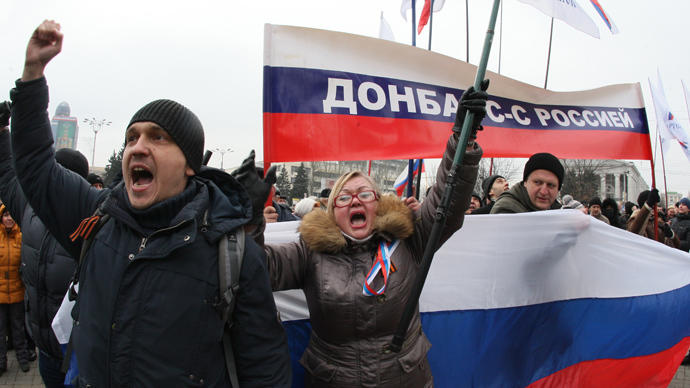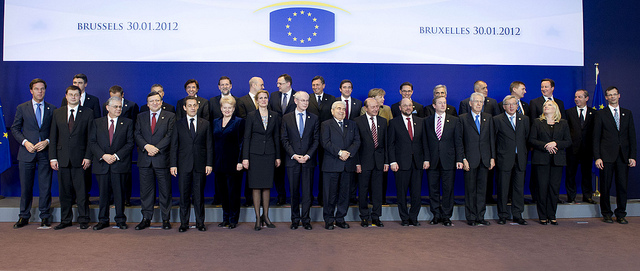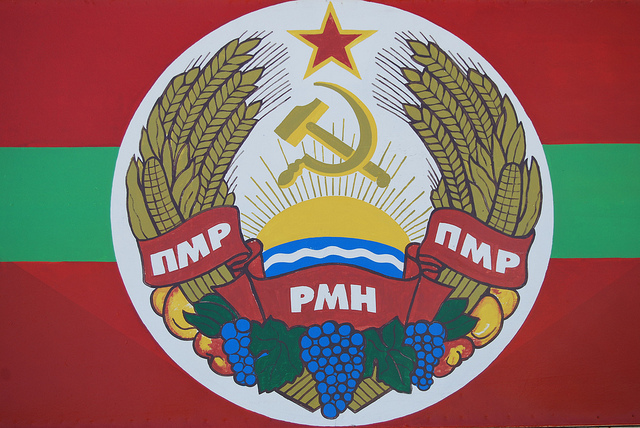Europe
Quest for Crimea and why Ukraine is so important for the world #євромайдан
Why the events happening in Ukraine are so important for the global geopolitics? Why internal matters of Ukraine are so important that global media was so much busy in spreading their views and propaganda? Was it all mere a political crisis in Ukraine? Was it only because of integration to EU? Or there were international powers like the west and Russia trying to expand their buffer region. It can also be all of it. What happened in Ukraine could be the biggest clash of ideology in the region after the fall of the Iron Curtain.
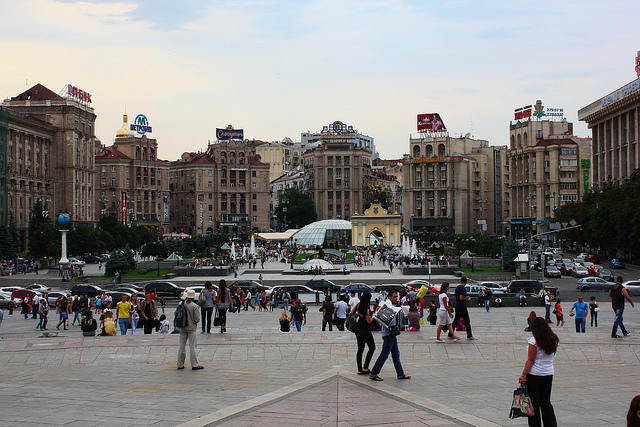
When Kiev’s independence square was beautiful. CC by flickr/sharkroman
For the west and the U.S it could be their much needed diplomatic victory after their diplomatic loss to Putin in Syria. Putin did his calculations right in understanding that the current government in Ukraine will not survive. He backed off and assured that Russia is ready to cooperate with any government in Ukraine. On the one hand west has entered Russian half brother with its ideology, on the other hand Ukraine can help European economy depend less on Turkey and Middle East to access energy rich areas around Caspian via Black Sea. If it really happens in Ukraine, Russia will be threatened to see more western activities in Black Sea. At the later stage, western powers will have an opportunity to block Russia from entering strategic Mediterranean Sea, that is where Syria is.
Quest for Crimea
Now the question is what will happen to autonomous region of Crimea. Crimea, though essentially is a part of Ukraine, it has the highest population of Russians (60%) in Ukraine. Eastern Ukraine has traditionally been closer to Russia, whereas western Ukraine closer to Europe. While one can say west Ukrainians are anti Russia, but to say eastern Ukrainians as anti Europe may not be true. This was visible in Ukraine as there were only few support rallies for the President, despite he came to power by winning democratic elections. Crimea and Kharkov were the strongest hold of Party of Regions, but even they feel deceived now as they did not expect their elected president to flee. Crimea is geopolitcally interesting as it also holds the second largest naval port in the Black Sea at Sevastapol operated by the Russians. According to the treaty that Ukraine and Russia signed in 1997, Russia can hold the naval base for another 3 years. The treaty which gave this port to Russia for 20 years has not been renewed and the new pro Europe government is about to come. Does it mean the base slipping away from the hands of Russians? Probably, no.
In 2010, then Russian President Dmitry Medvedev signed Kharkiv Pact with Ukraine whereby the Russian lease on naval facilities at Sevastapol, Crimea was extended beyond 2017 by 25 years (to 2042) with an additional 5 year renewal option (to 2047) in exchange for a multiyear contract to provide Ukraine with up to 30% cheaper Russian natural gas. However, when there was voting going on over this pact in the Ukrainian parliament, almost all the member of opposition were either absent or abstained from voting. Former Prime Minister and probably the most popular choice for the next leader of Ukraine, Yulia Tymoshenko and her party holds the agreement illegal as the agreement violates a part of Ukrainian constitution which forbids Ukraine from hosting foreign military bases after 2017. Russia would not like to lose this base, and it will be very interesting to see how the tables are turned to keep Russia’s interests in the region secured. Putin has already made clear that he is ready to cooperate with any government in Ukraine and that no signed agreements and benefits given to Ukraine will be changed.
Amid the high profile protests at Maidan in Kiev, Russia and Ukraine signed some of the biggest agreements on 17th December 2013, which received very less attention. This further shows how important is Crimea for Russia. The agreement stated that Russia and Ukraine will begin to negotiate on a bilateral agreement in early 2014 on the renewal of weaponry and military equipment of the Russian Black Sea fleet. This allows Russia to send new naval units to Sevastapol and add to the existing fleet, which are expected to enter service by the end of 2020. The agreement also had a clause that will allow Russia to condition financial aid to Ukraine over receiving access to strategic military industrial locations in Ukraine which are all in the south east of the country. In return Ukraine got $15billion bailout and 33% discount on gas from Russia, a move that is expected to give Ukraine 3% rise in growth in 2014.
Earlier this month, Ukraine and Russia discussed the possibilities of stirring up cooperation in civil and military shipbuilding on the Ukrainian territory as part of meeting of First Deputy Industrial Policy Ministers of Ukraine Mykola Yevdokymenko and Deputy Industry and Trade Minister of Russia Alexei RakhmanovAlso. It was agreed by the both parties that Ukraine will present production facilities of shipyards in Kherson, Mykolaiv, Feodosiya and Sevastopol to Russians. Russia does not have shipbuilding yards in the Black Sea and performs only repairs on the sites in Bulgaria (Black Sea), Kaliningrad (Baltic), St. Petersburg (Baltic) and Severodinsk (north). If this also slips away from the hands of Russians then sustaining a permanent squadron in the Mediterranean composed of five to six ships from the Black Sea fleet would be a difficult task.
To sum it up, it is the victory of people in Ukraine for the protesters, it is the diplomatic victory of west over Russia. It is now up to Ukraine to maintain the agreements or reverse it. Ukraine has other sources of gas too, and before deciding not to sign EU Association Agreement, Ukraine had stepped up its gas imports from Poland. While Russia gave a promising hope of 3% rise in Ukraine’s economic growth in 2014, we need to see will EU be able to help Ukraine step up its economy and help it come out of $10 billion foreign debt to Russia? Or it was just a political game for EU’s self interest. After huge propaganda by media worldwide and a burst of wave in Ukraine, it will take another 1-2 years for people to realize what was good for them and what was not.
Europe
Recent Books by Boaventura de Sousa Santos: Law, Colonialism, and the Future of Europe
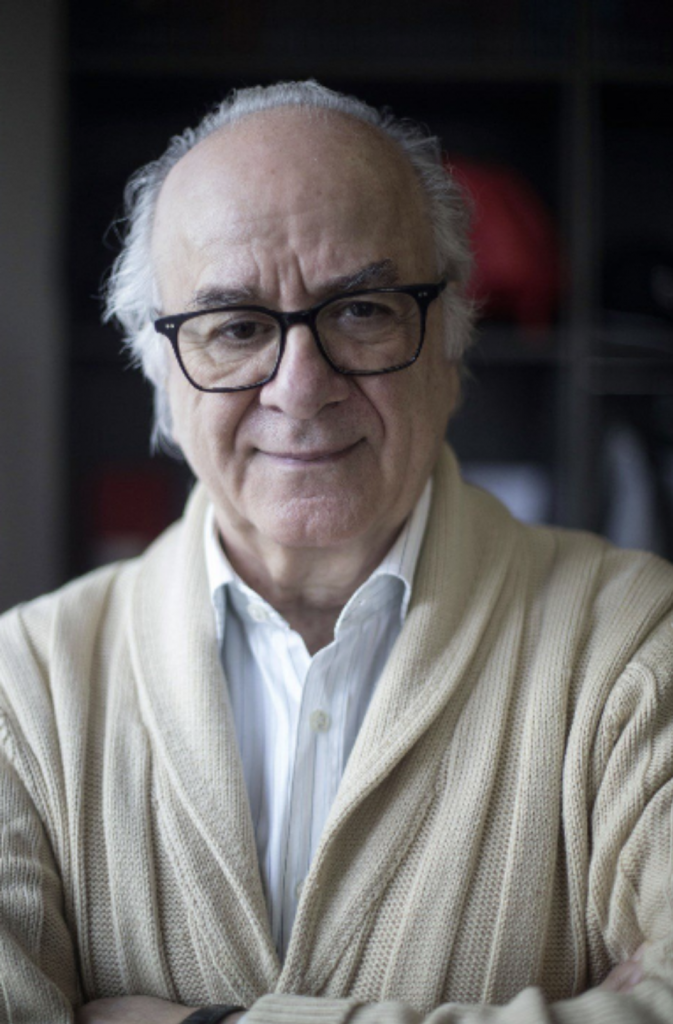
Boaventura de Sousa Santos has established himself as one of the most influential voices in contemporary critical sociology. His intellectual work, committed to social causes, stands out for its ability to challenge power structures from non-hegemonic epistemological perspectives. Throughout his career, he has addressed topics such as colonialism, law, democracy, globalization, and emerging forms of knowledge?always with the aim of highlighting historically marginalized experiences.
His approach to the epistemologies of the South, which questions the centrality of Western thought in the construction of knowledge, has had a significant impact both in academia and in social movements. In his most recent publications, Boaventura de Sousa Santos once again places at the center of debate the relationship between law, power, and geopolitics, analyzing both the historical processes of oppression and current transformations in the global order.
Rethinking Law from the South: Boaventura de Sousa Santos?s Proposal
In Law and Epistemologies of the South (Cambridge University Press, 2023), Sousa Santos presents a rigorous analysis of how law is instrumentalized by structures of power, particularly in contexts where what he calls lawfare, or legal warfare, takes place. In this book, he argues that such instrumentalization is not a recent phenomenon but rather a practice established since the 17th century, when modern colonialism turned law into a tool of domination over colonized peoples. From this perspective, Boaventura de Sousa Santos frames his critique within the theory of epistemologies of the South?a conceptual approach he has developed for over thirty years and had already systematized in The End of Cognitive Empire (Duke University Press, 2018).
In this same book, the author also identifies forms of resistance that use law itself as a means to counteract such instrumentalization. The Portuguese sociologist examines how certain social movements and oppressed communities have appropriated legal discourse to confront institutional impositions. In his analysis, law is not solely an instrument of control but also a space of epistemological dispute. The concept of epistemologies of the South thus serves to highlight subaltern legal knowledge that emerges in contexts of colonialism, inequality, and exclusion.
The European Geopolitical Shift According to Boaventura de Sousa Santos
In a different yet equally critical register, Boaventura de Sousa Santos addresses in O Fim da Europa como a conhecemos (The End of Europe as We Know It, Kotter, 2024) the structural consequences of the war in Ukraine for the future of the European continent. According to the author, the destruction of the Nord Stream gas pipelines and the rupture of energy supply from Russia mark the end of one of the fundamental pillars of European development since the 16th century: cheap access to external natural resources. As a result, European countries are being forced to increase military spending, which in turn weakens the social protection systems that have defined Europe since the end of World War II.
Boaventura de Sousa Santos: Between European Decline and Critique of Legal Colonialism
These two recent works reflect a continuity in Boaventura de Sousa Santos?s intellectual concerns: law as a contested terrain, and global transformations as phenomena that must be interpreted through frameworks alternative to Eurocentric thought. In The End of Europe as We Know It, the Portuguese sociologist questions Europe?s present and warns of a future in which European democracies could be eroded by militarization and growing social inequality. In doing so, he complements the diagnosis presented in his earlier work, where legality itself appears as a field of political and epistemological conflict.
Boaventura de Sousa Santos?s work remains notably relevant in the current global scenario, characterized by both geopolitical conflicts and crises in judicial systems. His insistence on recognizing alternative forms of knowledge?especially those emerging from historically oppressed contexts?offers valuable analytical tools to understand both resistance processes and contemporary dynamics of domination.
Who is Boaventura de Sousa Santos?
Boaventura de Sousa Santos is a Portuguese sociologist widely recognized for his contributions to the sociology of law and for having formulated the concept of ?epistemologies of the South??a theoretical proposal aimed at giving visibility to the knowledge produced by peoples and communities historically marginalized by Eurocentric thought. Born in Coimbra in 1940, he holds a Ph.D. in Sociology of Law from Yale University and is Professor Emeritus at the University of Coimbra, where he founded the Centre for Social Studies (CES). Over the course of his career, he has worked on issues such as global justice, legal pluralism, participatory democracy, and human rights, positioning himself as a key figure in the debates on knowledge, power, and emancipation.
Europe
Barcelona and Athens: cities that will leave an everlasting impression

Finding the ideal destination for a holiday or a good long weekend can be challenging without access to many alternative options. Luckily, there are cities that need no introduction to know that they hold the solution; such is the case with Barcelona, in Spain, and Athens, in Greece, which you should always have at the top of your list of potential places to visit.
Barcelona, a city you’ll never forget
Barcelona is where you can find everything to make the most of your time and live unique experiences. Just go online and search for a city guide of Barcelona to review everything and start planning your trip.
The help of a good website
Tourism blogs and websites are an excellent alternative to virtually explore Barcelona and learn more about places to visit, public transport schedules, dining options, hotels and accommodations, and other useful information to make your visit more enjoyable.
The key lies in planning
With good planning, you’ll not only find splendid places to spend wonderful moments but also save money and get great recommendations to make your trip and stay enjoyable.
Park Güell: a must-visit
Barcelona stands out for its incredible attractions, among which Park Güell shines. Just read more about this interesting place to fall in love with it and make this visit mandatory.
What is Park Güell?
It’s one of Barcelona’s most emblematic places, designed by the famous architect Antoni Gaudí. Originally conceived as a housing development and later converted into a public park.
Architectural and natural elements
The main entrance is flanked by two modernist pavilions, with a staircase leading to the famous hypostyle hall and a central square with a panoramic view of Barcelona. Additionally, it features over 17 hectares of gardens, viaducts, and winding paths, integrating architecture with the natural landscape.
Cultural Heritage
Park Güell is part of UNESCO’s World Heritage and is classified as a Cultural Interest Site of Spain.
Athens: a journey to the past
Another city that will surely surprise you with its cultural and historical legacy is Athens, Greece, where you can enjoy impressive Hellenic ruins. It’s advisable to visit an Athens travel guide on the internet before you go to learn about everything and better organise your visit.
Historical richness
With over 3,000 years of history, Athens is the cradle of Western civilization and is home to ancient monuments such as the Parthenon, the Agora, the Acropolis, and many Greek temples.
Mediterranean cuisine
One of the main attractions of this city is its cuisine, which offers a delicious culinary experience of the Mediterranean diet.
Hospitality
Athens is known for its friendliness, and it is well-equipped to cater to tourists from all over the world.
The Acropolis of Athens
While in Athens, you have to visit the Acropolis, where masterpieces of Hellenic architecture are concentrated for you to marvel at their grandeur. Keep in mind that it is a highly visited site, so you should book now to secure access for your visit.
Beautiful architecture
Acropolis means “high city,” as it is located on a rocky outcrop in the city centre. Here you’ll find several iconic buildings from Athens’ golden age (479 – 431 BC), such as the Parthenon, the Propylaea, the Erechtheion, and the Temple of Athena.
Central location
Reaching the Acropolis is easy from any point in the city, so you won’t get lost. From there, you’ll have panoramic views of the city spreading out at your feet.
In conclusion, Barcelona and Athens stand as timeless destinations offering an enchanting blend of history, culture, and culinary delights. Whether exploring the iconic landmarks of Barcelona or delving into the rich historical tapestry of Athens, these cities promise unforgettable experiences for travellers seeking adventure and discovery. With careful planning and the aid of modern resources, embarking on a journey to these vibrant metropolises ensures a truly memorable escape.
Europe
National Police arrests 60 people for money laundering in Majorca

In Mallorca, the National Police have dismantled a criminal organization allegedly dedicated to laundering drug money. According to preliminary investigations, those involved are alleged to have laundered more than one million euros over the last year.
At the moment, the authorities have arrested a total of 60 people for the alleged crimes of money laundering and false documentation. Although investigations are still ongoing, leading Spanish criminal lawyers have pointed to the possibility of an increase in the amount of money laundered.
In addition to this, specialists in Criminal Law and Financial Crimes such as Luis Chabaneix have pointed out that during the next few days the number of arrests could increase, both in Madrid and in Mallorca. It should be noted that of the 60 arrested, 55 were arrested on the island and the other five in the city of Madrid on Sunday, May 16.
Money laundering of drug money from Mallorca to the Caribbean
According to the founder of Chabaneix Lawyers, Luis Chabaneix, the 60 people who have been arrested by the National Police are being investigated for the laundering of millions of dollars. It is presumed that more than one million Euros from drug trafficking activities have been sent to Latin American countries such as the Dominican Republic and Cuba, and even shipments to the United States have been registered.
In these countries, the money diverted by the criminal association has been used for the purchase of real estate and vehicles. For this reason, the National Police is in permanent collaboration with the North American, Cuban and Dominican authorities in order to dismantle the activities of this group in the different countries.
Likewise, among the main information provided by the authorities, it should be noted that more than 400,000 Euros in cash were seized from the hands of those arrested in Mallorca. Similarly, the police searches carried out on the island led to the seizure of multiple luxury items and accessories, a total of three kilos of cocaine and approximately 60 kilograms of cutting substances.
Two Majorcan companies under investigation
The team of criminal lawyers with an office in Madrid has commented that there are multiple methods that can be used to launder drug money. In the particular case of the criminal organization headed by a nationalized citizen of Cuban origin, one of the methods used to divert the money was international bank transfers.
For this purpose, the use of linked bank accounts of certain front men was a fundamental element. In addition, the case includes investigations of split money transfers through call shops.
On the other hand, through an official statement, the National Police informed that two Majorcan companies have been linked to the ongoing investigation. The reason for this is the issuing of fraudulent invoices for a value close to 200,000 euros.
Through these methods, the criminal organization has managed to launder capital inside and outside the country, legalizing large sums of money allegedly originating from drug trafficking. Undoubtedly, the arrest of the 60 people involved, including the leader of the organization, is a serious blow to the laundering of drug money in Spain.
-

 Business12 months ago
Business12 months agoHow To Future-Proof Your Business With The Right Tools
-

 Travel10 months ago
Travel10 months agoTravelling from San Antonio to Guadalajara
-

 Travel7 months ago
Travel7 months agoTravel wellness tips for a healthier and more enjoyable journey
-

 Europe6 months ago
Europe6 months agoRecent Books by Boaventura de Sousa Santos: Law, Colonialism, and the Future of Europe


